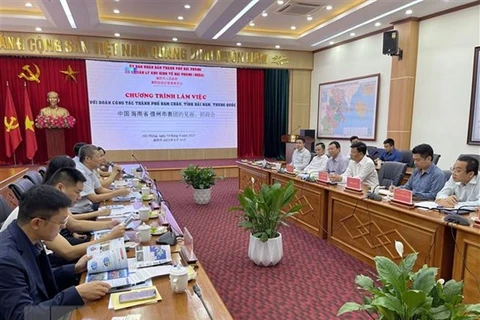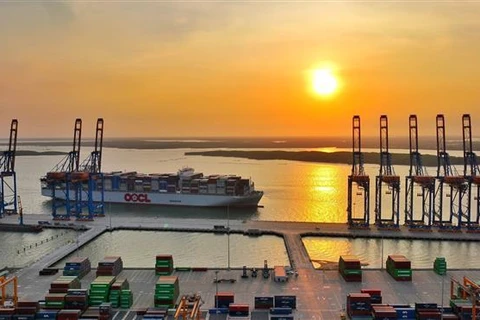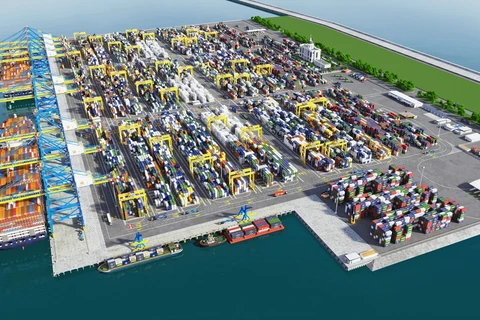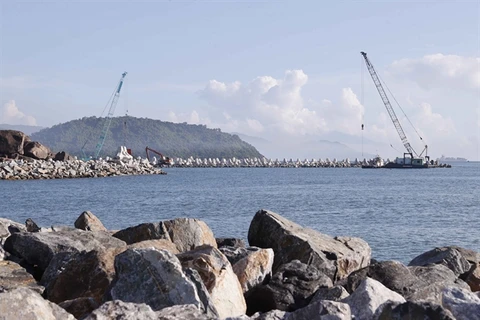 Minister of Planning and Investment Nguyen Chi Dung (C) visits the free trade centre and duty-free trade zone in Haikou. (Photo: VNA)
Minister of Planning and Investment Nguyen Chi Dung (C) visits the free trade centre and duty-free trade zone in Haikou. (Photo: VNA) The MPI is currently the standing agency of the steering committee on formulating the regional and international financial centre project, and Minister Dung is its deputy head. Meanwhile, the Da Nang People's Committee is proposing specific mechanisms and policies applicable to the central city, with a proposal related to the pilot establishment of the Da Nang free trade zone which is associated with Lien Chieu Port and Da Nang International Airport.
In Hainan, Dung had a working session with representatives from the China State Construction Engineering Corporation (CSCEC), during which they exchanged experiences in developing a free trade port, including tax exemption and reduction policies.
The MPI delegation visited the free trade centre and duty-free trade zone in Haikou, Hainan, and visited the Haikou Jiangdong New Area
The delegation had a working session with the Hainan Provincial Bureau of International Economic Development. Minister Dung proposed the two sides exchange specific experiences in building the Hainan Free Trade Port.
Speaking at the working sessions, Dung said that his working visit also aimed at deepening the two countries’ trade and investment cooperation.
He proposed the two sides increase connectivity, particularly in transport; intensify collaboration in priority fields such as digital economy, green economy and circular economy; and enhance people-to-people exchanges./.
VNA























